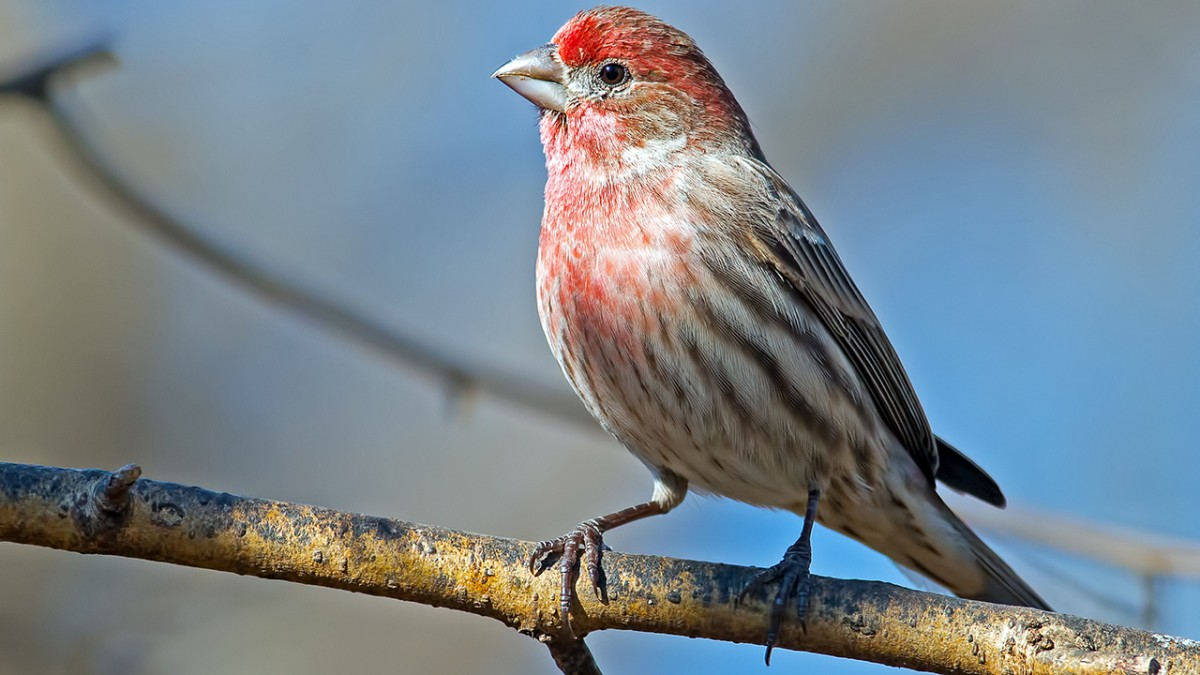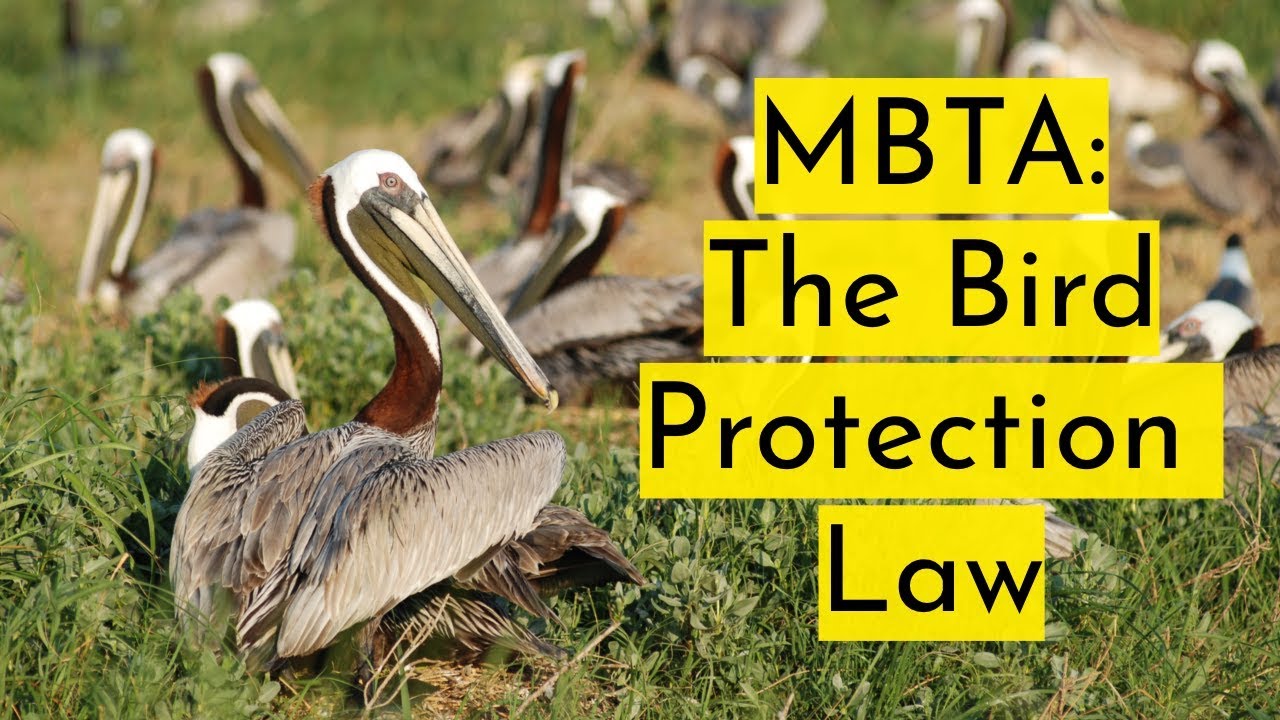Bird Law - Protecting Avian Species And Ecosystems
Bird law refers to the legal regulations and protections that govern various aspects of avian life and their interactions with humans and the environment.
Author:K. N.Sep 20, 202310.8K Shares470.9K Views

Bird lawrefers to the legal regulations and protections that govern various aspects of avian life and their interactions with humans and the environment.
While it might sound like an unusual concept, bird lawplays a crucial role in wildlife conservation, pet ownership, habitat preservation, and even aviation safety.
This intricate set of regulations addresses a wide range of topics, from the protection of endangered bird species to the management of bird-related nuisances and conflicts.
Understanding bird law is not only important for legal professionals but also for individuals who engage with birds in various contexts. Let's explore the complexities and significance of bird law in greater detail.
What Is Bird Law?
Bird Law refers to a set of legal regulations and statutes that pertain to the protection, conservation, and management of bird species and their habitats.
These lawsare designed to ensure the well-being and survival of various bird species by addressing issues such as habitat destruction, hunting, trade, and human-bird interactions.
Bird Law is a branch of environmental law that focuses specifically on the legal rights and responsibilities surrounding avian species.
It aims to strike a balance between human activities and the conservation of bird populations to maintain ecological diversity and integrity.
Is Bird Law Governed By Reason?
In the realm of the bizarre and the utterly nonsensical, one might find themselves contemplating the intricacies of bird law in the United States. Thanks to the offbeat and quirky minds behind the show "It's Always Sunny in Philadelphia," the term "bird law" has been catapulted from obscurity into the annals of pop culture. But, is it possible that Charlie's musings on bird law might hold even a sliver of truth in the real world?
To unravel this avian enigma, we must delve into the history of bird-related legislation in the United States. The protection of our feathered friends began as a response to the devastating consequences of the commercial bird trade in the late 1800s.
The rampant exploitation of birds and their exquisite plumage had resulted in a significant decline in numerous native bird species. Thus, laws and treaties were established to safeguard these creatures of the sky.
The pinnacle of this protective legislation emerged as the Migratory Bird Treaty Act. This act stood as a testament to international cooperation, aligning the United States with fellow migratory bird-sharing nations: Mexico, Canada, Russia, and, surprisingly, Japan. This legal accord aimed to safeguard the intricate migratory patterns of birds that bridged these nations during various phases of their annual life cycles.
Moreover, the legislative canopy extended to encompass birds designated as endangered species under the Endangered Species Act. Magnificent creatures like the Californian Condor and the Puerto Rican Parrot found refuge under this statute, their survival intricately tied to the laws enacted to shield them from extinction.
But it doesn't stop there. The Wild Exotic Bird Conservation Act swoops in, restricting the influx of non-indigenous wild birds into the United States due to the rampant demand for such exotic avian pets. This law serves as a reminder that not all avian companions are meant to be tamed.
And then, there are the iconic birds that have their own acts of protection, such as the regal bald and golden eagles, who are sheltered by the Bald and Golden Eagle Protection Act. This legislation leaves no room for ambiguity, making it clear that disturbing or harming these majestic creatures is a serious offense.
Yet, amidst the sea of legal intricacies, Charlie's opinion on bird law remains a beacon of confusion. His assertion that bird law is not governed by reason is both humorous and misguided. The well-established framework of laws, treaties, and acts protecting birds in the United States is a testament to human reasoning and a commitment to conserving the natural world.
While Charlie's peculiar brand of "legal expertise" might not be rooted in reality, his endearing character and comedic portrayal have lent a memorable twist to the world of jurisprudence.
So, as we bid adieu to Charlie's quirky interpretations, let's acknowledge that while bird law may indeed be complex, it is, in fact, governed by reason—a reason grounded in the preservation of the beauty and diversity of the avian realm.
Historical Development Of Bird Law
The historical development of Bird Law traces back to various significant events and movements that highlighted the need for the protection and conservation of bird species.
Over the years, the recognition of the importance of birds in maintaining ecological balance and biodiversity led to the formulation of legal frameworks aimed at their preservation. Here are some key points in the historical development of Bird Law:
- Early Conservation Movements -In the late 19th and early 20th centuries, concerns about the overhunting and poaching of birds, particularly for their feathers and plumes, gained attention. This led to the establishment of the first wildlife protection laws in countries like the United States and the United Kingdom. The focus was initially on preventing the extinction of specific bird species, such as the Carolina parakeet and the great auk.
- Migratory Bird Treaty Act (1918) -One of the most significant milestones in Bird Law's history is the enactment of the Migratory Bird Treaty Act in the United States. This law aimed to protect migratory birds and their habitats by establishing regulations on hunting, capturing, and trading these birds. It was a response to the decline in bird populations due to habitat loss and unregulated hunting.
- International Treaties -The early 20th century saw the development of international agreements to address the global conservation of migratory birds. The Migratory Bird Treaty Act served as a model for various bilateral treaties between the United States and other countries, such as Canada and Mexico. These treaties focused on cooperative conservation efforts across borders.
- Expansion of Environmental Awareness -As the environmental movement gained momentum in the mid-20th century, there was a growing recognition of the interconnectedness of ecosystems and the need for comprehensive conservation laws. This led to the inclusion of bird protection in broader environmental legislation, such as the U.S. Endangered Species Act of 1973.
- Convention on International Trade in Endangered Species (CITES) -This international agreement, established in 1975, aims to ensure that international trade in wild animals and plants does not threaten their survival. CITES includes provisions for regulating the trade of certain bird species to prevent overexploitation.
- Habitat Conservation -Over time, Bird Law evolved beyond the direct protection of birds to also encompass the preservation of their habitats. Legal mechanisms like the creation of protected areas, wildlife refuges, and conservation easements play a crucial role in safeguarding bird habitats.
- Advances in Research and Technology -The development of advanced research techniques and technologies, such as bird banding and satellite tracking, has provided valuable data for policymakers and conservationists. This information has contributed to the formulation of evidence-based Bird Laws and management strategies.

MBTA: The Bird Protection Law
Migratory Bird Treaty Act Of 1918
The Migratory Bird Treaty Act of 1918 (16 U.S.C. 703-712) implements the U.S.'s 1916, 1936, 1972, and 1976 conservation accords with Canada, Mexico, Japan, and Russia. It protects all protected migratory bird populations.
Each pact has updated the statute, as did Mexico in 1976 and Canada in 1995.
The Migratory Bird Treaty Act (MBTA) forbids killing, capturing, selling, trading, and transporting protected migratory bird species without prior clearance from the Department of Interior U.S. Fish and Wildlife Service.
MBTA-protected Migratory Bird Species
The statute protects four international treaty bird families and species of migratory birds. Title 50 Part 10.13 of the Code of Federal Regulations contains this list. In 2023, the 10.13 list was updated with the latest scientific taxonomy and natural distribution data. Microsoft Excel users may download the list.
The list includes migratory bird species that match one or more of these criteria:
- It is protected by one of the four international treaties or its revisions and occurs naturally in the US or its territories.
- Revised taxonomy splits it from a previously listed species, and the new species exists naturally in the US or its territories.
- The species is in a protected family and natural distributional changes have shown its natural occurrence in the US or US territories.
List Of Non-Migratory Bird Treaty Act Species
The Migratory Bird Treaty Reform Act of 2004 (MBTRA) amended the MBTA to apply only to native migratory bird species in the US or US territories, which are present due to natural biological or ecological processes.
The Service amended its list of nonnative, human-introduced bird species exempt from the MBTRA in 2020. The 2020 update lists species from biological families the MBTA incorporates that are not protected because they were introduced by humans. It reflects current taxonomy and natural science.
Migratory Bird Permits
"The taking, possession, transportation, sale, purchase, barter, importation, exportation, and banding or marking of migratory birds" is covered in 50 CFR 21. This portion also sets depredation orders that provide limited Migratory Bird Treaty Act exclusions for public, scientific, and educational organizations. ePermits manages these permits for the U.S. Fish and Wildlife Service Migratory Bird Permit Program.
People Also Ask
Is Bird Law A Specialized Field Of Study In Legal Education?
Bird law refers to a specific area of law that deals with regulations, protections, and issues related to avian species. While it may not be a standalone field of study in traditional legal education, it is an important aspect of environmental and wildlife law.
What Are Some Common Cases Involving Bird Law?
Bird law cases can involve a range of issues, such as bird habitat protection, conservation efforts, disputes related to ownership and rights of birds, and conflicts between bird-related activities and human interests.
How Does Bird Law Relate To Environmental Conservation?
Bird law plays a crucial role in environmental conservation by establishing regulations and protections for bird species and their habitats. These laws aim to prevent extinction, maintain biodiversity, and promote the sustainable coexistence of birds and humans.
Can Individuals Be Held Legally Responsible For Harming Birds?
Yes, individuals can be held legally responsible for harming birds, especially if they violate laws related to bird protection, such as the Migratory Bird Treaty Act in the United States. Deliberate harm, destruction of nests, or illegal trade in birds can lead to legal consequences.
Is Bird Law Only Relevant For Professionals Working With Birds?
No, bird law is relevant to a broader audience beyond professionals. It affects individuals who own pets, engage in outdoor activities, manage properties, or participate in activities that interact with bird populations. Understanding bird law can contribute to responsible behavior and bird conservation efforts.
Final Thoughts
Bird law encompasses a diverse range of legal principles and regulations that are vital for the protection, conservation, and coexistence of avian species with humans and the environment.
The complex interplay between wildlife conservation, pet ownership, aviation safety, and land use necessitates a comprehensive legal framework to ensure the well-being of birds and the ecosystems they inhabit.
As society continues to evolve, understanding and adhering to bird law becomes increasingly essential in maintaining the delicate balance between human activities and the preservation of these remarkable creatures.
Whether it's safeguarding endangered species, resolving conflicts, or promoting responsible stewardship, bird law remains a critical aspect of our legal landscape that contributes to the harmony of the natural world.

K. N.
Author
Latest Articles
Popular Articles